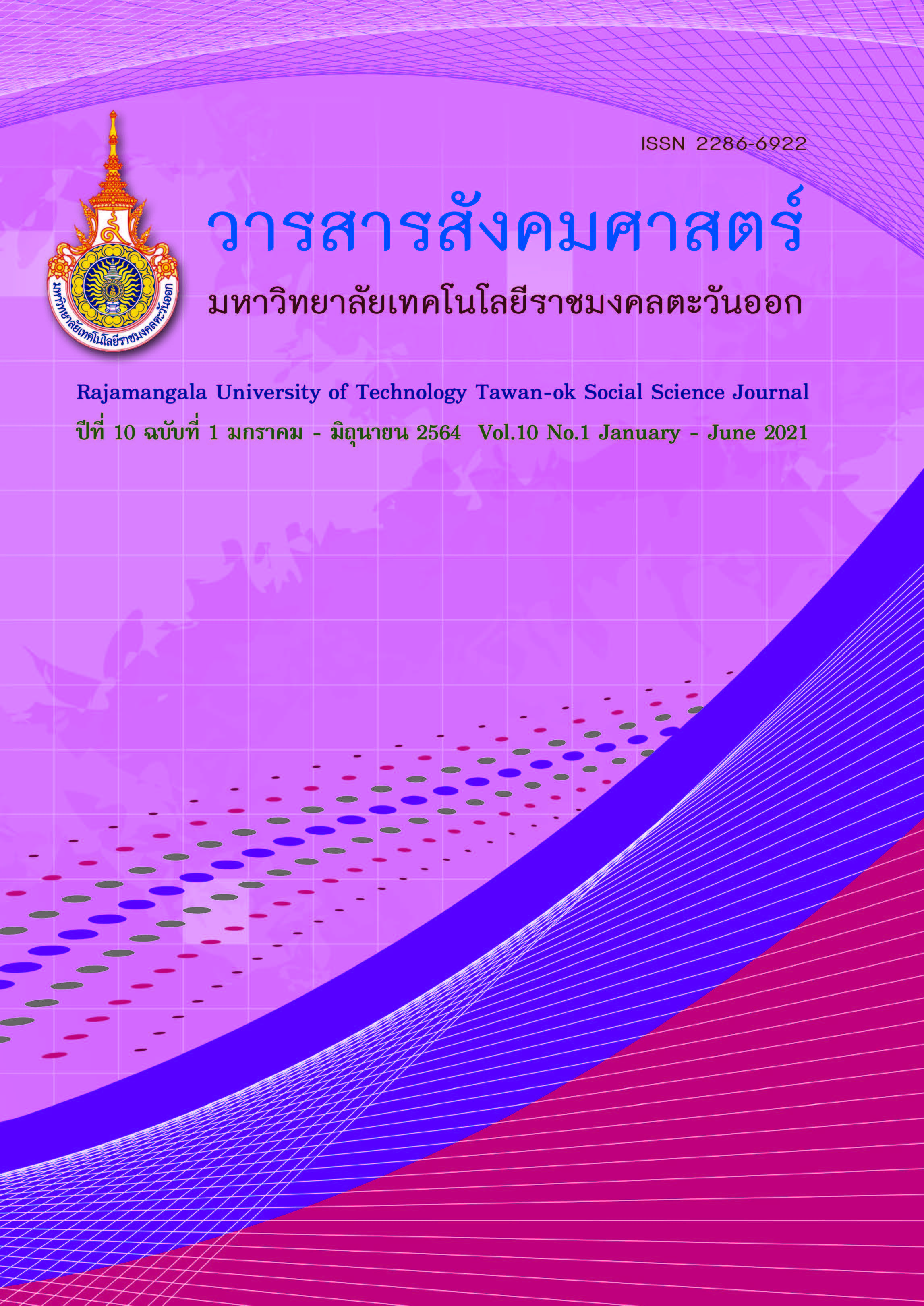Project-Based Learning with Constructivism and Scaffolding
Main Article Content
Abstract
The Constructivism and Scaffolding approaches were employed with the students who enrolled in 710 499 Senior Project to improve learning and teaching processes of the course. The purposes were for the students to practice critical thinking skills, analyzing, and developing their own knowledge. The learning processes included, 1) orientation for students to understand the constructivism theory and adapt it to be suitable for their level using the project-based learning and guided learning methods. 2) Sample situations were given for students to analyze, make an assumption, find a solution, and make a conclusion. 3) Teacher offered supplementary courses to fulfill students’ knowledge of how to do the project. 4) Students were required to present their assumptions of their research questions, the rough solution, and make a conclusion for solving the problems. 5) Students presented their methods of finding solutions for their research questions or project and brainstormed to find the concrete solutions for doing the project. 6) Students presented their processes of doing
the project to thesis advisor and co-advisors to get advice and find conclusion. 7) Students wrote their thesis under the supervision of their advisors and were evaluated individually and as a group from time to time throughout the course. The final step is defending their thesis and receiving advice from research committee.
From using the Constructivism and Scaffolding approaches, it can be concluded that in the process of developing thesis questions, students were active and cooperative. They were confident to express their opinions, answering and asking questions. They participated in discussion and were able to explain the background and significance of research questions and theories. In addition, they accepted other students’ ideas and worked hard. In the research proposal process, it was found that students were able to write the research proposal systematically, were relatively good at reviewing literature, and were able to search for suitable sources. In the thesis defense process, students were able to accurately present the data with regard to their thesis topic and make a pertinent conclusion. Moreover, they could manage to present the data systematically, namely the introduction, the content,and the conclusion. Nevertheless, the priority of the content was not in order. Students could use
the Thai language accurately and appropriately and were able to answer the questions.
Article Details
References
ดวงเดือน เทศวานิช. 2535. รูปแบบการสอน. วิทยาลัยครูพระนครสหวิทยาลัยรัตนโกสินทร์. 1(1): 20-22.
ชลสีต์ จันทาสี. 2543. การศึกษาเปรียบเทียบผลสัมฤทธิ์ทางการเรียนวิทยาศาสตร์และความสามารถในการตัดสินใจอย่างสร้างสรรค์ ของนักเรียนชั้นมัธยมศึกษาปีที่ 1 ที่ได้รับการสอนโดยชุดกิจกรรมการตัดสินใจทางวิทยาศาสตร์กับการสอนตามคู่มือครู. ปริญญานิพนธ์ กศ.ม.(การมัธยมศึกษา) บัณฑิตวิทยาลัย. มหาวิทยาลัยศรีนครินทรวิโรฒ. ถ่ายเอกสาร
มนมนัส สุดสิ้น. 2543. การศึกษาผลสัมฤทธิ์ทางวิทยาศาสตร์และความสามารถด้านการคิด วิเคราะห์วิจารณ์ของนักเรียนชั้นมัธยมศึกษาปีที่ 2 ที่ได้รับการสอนแบบสืบเสาะหา ความรู้ประกอบการเขียนแผนผังมโนมติ. ปริญญานิพนธ์การศึกษามหาบัณฑิต วิชาเอกการมัธยมศึกษา มหาวิทยาลัยศรีนครินทรวิโรฒ.
ลัดดา ภู่เกียรติ. 2552. การสอนแบบโครงงานและการสอนแบบใช้วิจัยเป็นฐาน : งานที่ครูประถมทำได้. โรงพิมพ์แห่งจุฬาลงกรณ์มหาวิทยาลัย: กรุงเทพฯ
วัฒนา มัคคสมัน. 2551. การสอนแบบโครงงาน. พิมพ์ครั้งที่ 2. โรงพิมพ์แห่งจุฬาลงกรณ์มหาวิทยาลัย: กรุงเทพฯ
สุวัฒน์ นิยมค้า. 2531. ทฤษฎีและทางปฏิบัติในการสอนวิทยาศาสตร์แบบสืบเสาะหาความรู้เล่ม 1-2. เจเนอรัลบุ๊คส์เซนเตอร์: กรุงเทพฯ
อนันต์ จันทร์กวี. 2523. ผลการใช้คำถามของครูที่มีต่อทักษะกระบวนการทางวิทยาศาสตร์ ผลสัมฤทธิ์และทัศนคติของนักเรียนชั้น ม.ศ.2และ ม.2. ดุษฎีนิพนธ์, สาขาวิชาวิจัยและพัฒนาหลักสูตรบัณฑิตวิทยาลัย. มหาวิทยาลัยศรีนครินทรวิโรฒประสานมิตร.
แอนนา ป่าสนธ์. 2554. การพัฒนาบทเรียนคอมพิวเตอร์ช่วยสอนผ่านเว็บแบบโครงงานเป็นฐาน วิชาระบบฐานข้อมูล. วิทยานิพนธ์ครุศาสตร์อุตสาหกรรมมหาบัณฑิต สาขาวิชาเทคโนโลยีคอมพิวเตอร์ ภาควิชาคอมพิวเตอร์ศึกษา บัณฑิตวิทยาลัย. มหาวิทยาลัยเทคโนโลยีพระจอมเกล้าพระนครเหนือ.
Johnson, D. W. 1991. Cooperative Learning: Increasing College Faculty Instructional Productivity. ASHE-ERIC Higher Education Report No. 4, 1991. ASHE-ERIC Higher Education Reports, George Washington University, One Dupont Circle, Suite 630, Washington, DC 20036-1183


